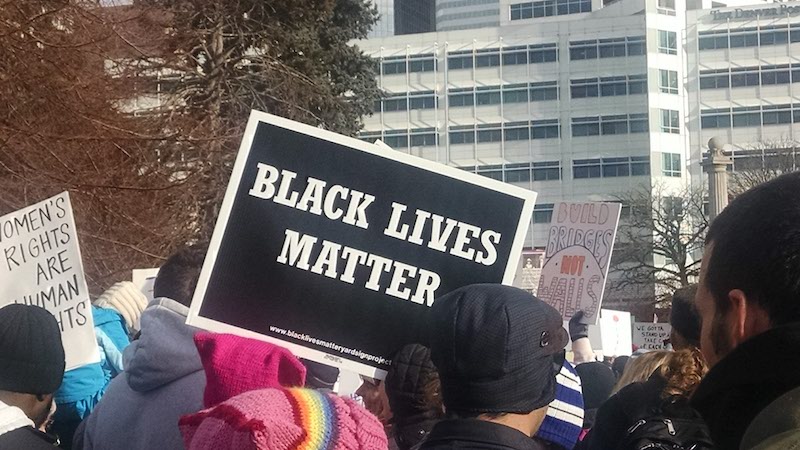written by Tony Baker
What does God think of the Black Lives Matter demonstrations? While this may seem an inane question to many, it is in some ways the decisive theological question for this moment in the U.S. Is God at work out in the streets, where anger and sometimes chaos are on display? Or is God on the side of order and security? What does the Bible say to guide us in these times?
Theology, both Protestant and Catholic, has in the last half century been reconsidering its relationship to the stability of states, the stirrings of social transformation, and the movement of history as a whole. Modern philosophers, and in particular Hegel and Marx, have been at the center of these efforts. Hegel’s great insight, which is in some ways the beginning of what we now call history, was that life is “spirit,” or energy-for-transformation. It was a very simple insight, though also one worth the thousands of pages Hegel devoted to it. In the locked down alignment of a master and slave, the master is ultimately on the losing side, the side that resists transformation and therefore life. The slave has all the motivation in the world to alter the situation, and eventually, one way or another, spirit wins.
Marx more or less accepted this general idea, but honed it down to economic activity. He saw human history as the energy of transformation through patterns of exchange. His great insight was that a system of economy that relies on the alienation of a working class from the goods and services they produce—and the enjoyment of these goods and services—will always function as a slow burn in the direction of revolution. Again, those working to preserve this alienating structure are doomed, as life is on the side of revolution.
One of the two great gains of twentieth century theology was the imperative to imagine the teachings of Christianity from this new insight of history as change. (The other, not entirely unrelated, was the ability to imagine these teachings through new interpretations of the classical philosophical and theological traditions.) Reading Hegel and Marx alongside the story of Israel’s God leading them out of Egyptian slavery, or alongside Jesus’ promise that the meek will inherit the earth, gave birth to a new energy within theological language, or perhaps a new discovery of an old energy. Christianity is a religion of transformation: think of Paul’s appeal to transform one’s mind in alignment with the radical new freedom inaugurated by Jesus’ resurrection. It is a religion, even, of revolution: think of Mary’s song about how her son will cast down the mighty and lift up the poor and hungry.
Again, in some ways this was a recovery of something very old in the faith. Anglican Archbishop Desmond Tutu’s 1977 sermon at the funeral of Steven Biko, a young black anti-apartheid organizer murdered by the South African police, borrowed from the early testaments of the martyrs when it noticed the way the political execution of “this young man in his thirties” retells the story of another young man like him in Jerusalem. But there is something decidedly new in Salvadoran Jesuit Ignacio Ellacuría’s insight that the life of the Christian community is nothing more or less than “the incorporation of Jesus Christ in the reality of history.” If history is transformation, then true Christian witness must identify what he called “the crucified people” as sites of God’s transformative spirit. History is change, the philosophers taught us, and change is the spirit of the humiliated. Humiliation, the theologians are teaching us, is the way that God enters history.
George Floyd’s death was a humiliating crucifixion; afterward the streets exploded with the spirit of resurrection. We must say, unequivocally, that black lives matter to God. More, that the death of people of color at the hands of the state aligns the people, not the state, with the revolutionary faith of the crucified God. Biko, Floyd, Breonna Taylor, Rayshard Brooks, Michael Brown. And while it is, I believe, a step too far to say that this God is on the side of violent rioters and looters, we can see their actions as a manic insistence, by those alienated in an economy that relies on alienation, that the meek should in fact inherit the earth. Whereas those ordering the police to dominate the streets will, as Mary put it, one day be “brought down from their thrones” by the poor child in her womb.
Dr. Anthony D. Baker is the Clinton S. Quin Professor of Systematic Theology at Seminary of the Southwest in Austin, TX.

